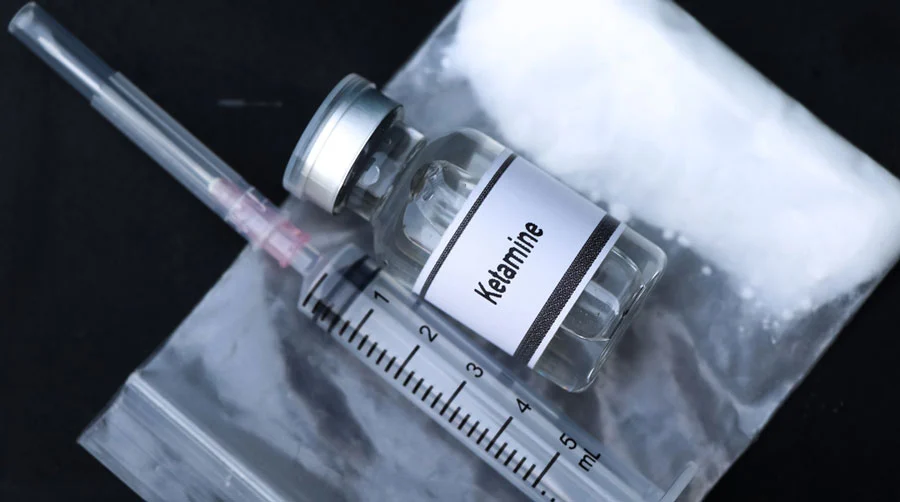Proven Trauma Treatment: The Risks of Ketamine for CPTSD
Complex PTSD comes with many symptoms that feel impossible to manage. You may struggle to regulate emotions, experience outbursts, or have feelings of depression and anxiety. It may feel like your trauma is controlling your life and ruining your relationships.
If you’ve sought treatment before without success, you might be wondering, “Is ketamine for complex PTSD safe?”
While some research supports using ketamine for treatment-resistant conditions, it really should be used as a last resort. It comes along with uncomfortable side effects, high treatment costs, and a risk of addiction.
Keep reading to learn more about complex PTSD, how ketamine can help, and alternatives to ketamine treatment offered at South Shores.
What is Complex PTSD and How Does it Arise?
Complex PTSD (C-PTSD or complex trauma) is a mental health disorder caused by traumatic events, much like PTSD. However, it comes with additional behavioral, emotional, and other struggles.
Rather than an isolated event, complex PTSD is most likely to be caused by repeated or long-term trauma. It can also happen as a result of extreme childhood adversity.
The Typical Symptoms of Post Traumatic Stress Disorder
While complex PTSD comes with its own set of symptoms, it also shares symptoms with posttraumatic stress disorder. Common PTSD symptoms are classified into four groups, including:
- Reactivity and Arousal – This group of symptoms describes your reaction to the trauma and triggers in the present. For example, certain stimuli might make you feel tense or on edge. You may be easily startled. Constantly being on guard can also cause trouble sleeping, loss of concentration, agitation, and angry outbursts.
- Avoidance – People sometimes avoid people, places, or situations that are a reminder of the trauma. For example, you might avoid driving after a car accident or going out at night after being robbed.
- Re-Experiencing – This describes any symptoms that cause you to relive the trauma. For example, you might have nightmares, flashbacks, or distressing feelings. Often, these come along with a physical and emotional response. Common physical symptoms include shaking, sweating, chronic pain, and nausea.
- Cognitive and Mood – While some people cannot forget trauma, others have difficulty remembering the details. Trauma may also cause mood changes, make you feel negatively about the world around you, or lead to feelings of shame, guilt, anger, or fear.
Trauma affects everyone differently. Unfortunately, it can also occur alongside other mental disorders including anxiety and depression symptoms, eating disorders, and substance abuse problems.
Traditional PTSD vs Complex PTSD Symptoms
Treating posttraumatic stress disorder is difficult on its own. If you are struggling with C-PTSD, you may struggle with these symptoms in addition to those mentioned above:
- Struggles in interpersonal relationships – Complex PTSD makes it hard to trust or feel connected to people. You may fear abandonment, experience intense emotions from triggers, or feel unsafe when things are calm, leading to chaotic relationships that are difficult to manage.
- Cognitive difficulties – People with complex trauma often disassociate from the world around them. This extreme disconnection can make you feel lonely or misunderstood. You may feel damaged, unworthy, or like you will never improve. People with C-PTSD may also change their personalities.
- Emotional struggles – Traumatic events can change how you view the world around you. Many people with C-PTSD experience intense emotions, including feelings of hopelessness or emptiness, panic, depressive symptoms, distrust, fear, anger, and rage. You may have problems controlling these emotions or experience emotional flashbacks.
- Behavioral difficulties – C-PTSD also causes behavioral difficulties, including sexual promiscuity, misuse of drugs or alcohol, aggressiveness and angry outbursts, self-destructive behavior, and impulsive behaviors.
- Somatization – This term describes feeling physical symptoms caused by emotional or psychological distress. Common physical health issues include fatigue, nausea, headaches, chronic pain in the back and other areas, or nausea. You may even seek treatment from a physician without receiving a diagnosis because there is no physical cause.
Sadly, complex PTSD is often misdiagnosed. It presents with similar symptoms as personality disorders, including borderline personality disorder. Finding the right treatment starts with an accurate diagnosis. You can find the right diagnosis and get help with an effective treatment plan at South Shores.
What Types of Events Cause Post Traumatic Stress Disorder?
Any traumatic event that causes significant stress has the potential to cause PTSD. Natural disasters like wildfires, tornadoes, and hurricanes cause trauma, especially for people who experienced significant loss. Serving during wartimes, childhood abuse, abuse from intimate relationships, bullying, stalking, harassment, being in a car accident, or being the victim of a crime may cause PTSD.
Cases of complex PTSD are most likely to be caused by repeated exposure to trauma or trauma that occurs over a significant period. For example, prolonged child abuse, witnessing or being a part of ongoing domestic violence, neglect or abandonment, sex trafficking, being tortured, kidnapped, or imprisoned, sexual abuse, and being a prisoner of war are scenarios that may cause C-PTSD.
Complex vs. Chronic Posttraumatic Stress Disorder
PTSD is a fairly common reaction that can last for weeks or months after the traumatic experience. When you go through trauma, stress causes your body to go into “flight or fight” mode. Your heart races as blood pumps through your body and it can be hard to think, remember things, or make decisions.
There are changes in various areas of the brain including the prefrontal cortex and anterior cingulate cortex. Often, these initial symptoms flare up when you’re reminded of the event. When these flare-ups last longer than six months, these symptoms are upgraded to the diagnosis of chronic (long-lasting) PTSD.
By contrast, complex trauma comes with its own set of additional symptoms. It is also most likely to occur if you have experienced several traumas, trauma was experienced at a young age, trauma was long-lasting, you were harmed by someone you trusted, and when rescue or escape seemed likely.
How Does Ketamine Benefit Complex PTSD?
At one time, medical professionals referred to medications used to treat PTSD as “pharmacological agents” rather than “drugs.” In recent years, however, certain “street drugs” have been tested with some effectiveness in difficult conditions like treatment-resistant depression that cannot be improved with SSRIs (selective serotonin reuptake inhibitors) and complex PTSD.
There has been research conducted on the effects of other psychoactive drugs as well including LSD, psilocybin, and MDMA. Psychedelic-assisted psychotherapy is even used in some parts of the world.
Ketamine-assisted psychotherapy has a therapeutic effect on the NMDA receptor of the brain. High reactivity in this area is associated with flashbacks, intrusive thoughts, anxiety, depression, and other mental health symptoms. It is also a risk factor for the development of post-traumatic stress disorder following childhood trauma, wartime involvement, sexual assault, intimate abuse, and other lasting traumatic events.
According to this randomized clinical trial, blocking this receptor with intravenous ketamine therapy eliminates some of these unpleasant symptoms.
What Are the Risks of Ketamine Treatments?
Have you ever heard of people taking “horse tranquilizer” or “Special K” to experience a trance-like state? These people are taking ketamine. Ketamine produces disorientation, drowsiness, dizziness, and possibly hallucinations. It has FDA approval for its therapeutic effects for pain and distress, which is why it is commonly used alongside anesthesia during surgery.
Many people also experience gastrointestinal issues including loss of appetite, nausea, and possibly vomiting after ketamine infusions. Symptom severity depends on your tolerance and reaction to ketamine. In certain cases, treatments can also cause depressed mood, especially in cases of early discontinuation of treatment.
Furthermore, low doses must be given over time to experience benefits from this course of treatment. This comes with a high risk of addiction. Often, insurance companies will not pay for ketamine treatments. Mental health treatment must be covered by your insurance provider, but ketamine is still considered experimental.
Alternative Treatments for Complex PTSD
C-PTSD is a chronic (life-long) condition. That means that even though managing the symptoms is possible, there may still be times when you struggle. This is why establishing support and effective therapies are so important when you are struggling with C-PTSD.
Certain medications may also be prescribed to help manage sleep disturbances, anxiety, mood dysregulation, depressive symptoms, and other common symptoms of this condition.
What are the Most Effective Therapies for C-PTSD?
One of the best treatment options for complex trauma is evidence-based therapies including cognitive processing therapy, cognitive behavioral therapy, eye movement desensitization and reprocessing, and prolonged exposure therapy. Some therapies work to reduce your stimuli when triggered by your traumatic experiences, while others focus on changing how you think about and respond to those memories.
It’s important to remember that overcoming trauma requires patience. Many people hide flashbacks and intrusive thoughts for years, turning to harmful ways to cope. Be understanding with yourself as you go through therapy. It will be hard to bring up trauma, especially after trying to bury it. With the right effort, however, your traumatic memories will start to affect you less and less. While they may not disappear entirely, you’ll learn new thought processes.
For example, you might learn to challenge thoughts of self-blame and guilt with cognitive behavioral therapy. During exposure therapy, you’ll be gradually exposed to what caused the trauma, learning how to regulate your feelings and making you less reactive to it over time. Eye movement desensitization therapy helps you uncover and understand traumatic memories or events. With the sensitivity of issues surrounding complex trauma, it’s important to have a solid therapeutic relationship. Be sure to work with someone you trust.
Ketamine for Complex PTSD and Our Dual Diagnosis Treatment Alternative
People with C-PTSD sometimes have co-occurring mental health conditions like Major Depressive Disorder, Obsessive Compulsive Disorder, mood disorders, and anxiety disorders. It’s also possible to struggle with addiction when you have C-PTSD, especially if you use drugs or alcohol to numb your emotions or dull traumatic memories. It’s very easy for someone with this mental illness to become addicted to ketamine, even when used in a medical setting.
At South Shores, we offer dual diagnosis treatment that addresses complex PTSD in addition to any co-occurring diagnoses. Addressing any underlying issues is important as part of the recovery process. As you learn to manage your symptoms, you’ll also be able to break free of dependency on alcohol or drugs.
Get Effective Treatment for C-PTSD at South Shores
Treating complex PTSD comes with a unique set of challenges, especially when it occurs alongside substance use disorder, physical health issues, or other mental health conditions. Ketamine for PTSD is not always the answer. There are cases where it’s been effective, but it comes with a high risk of addiction when dealing with complex trauma. It can also produce uncomfortable side effects.
If you’d like to discuss treatment options for complex trauma, reach out to South Shores Recovery. Whether you are interested in inpatient or outpatient treatment programs, we have you covered at every level of care. Our evidence-based programs and therapies ensure that each of our clients has the best chance possible at a happy life. Call us to find out how we can help you today.





